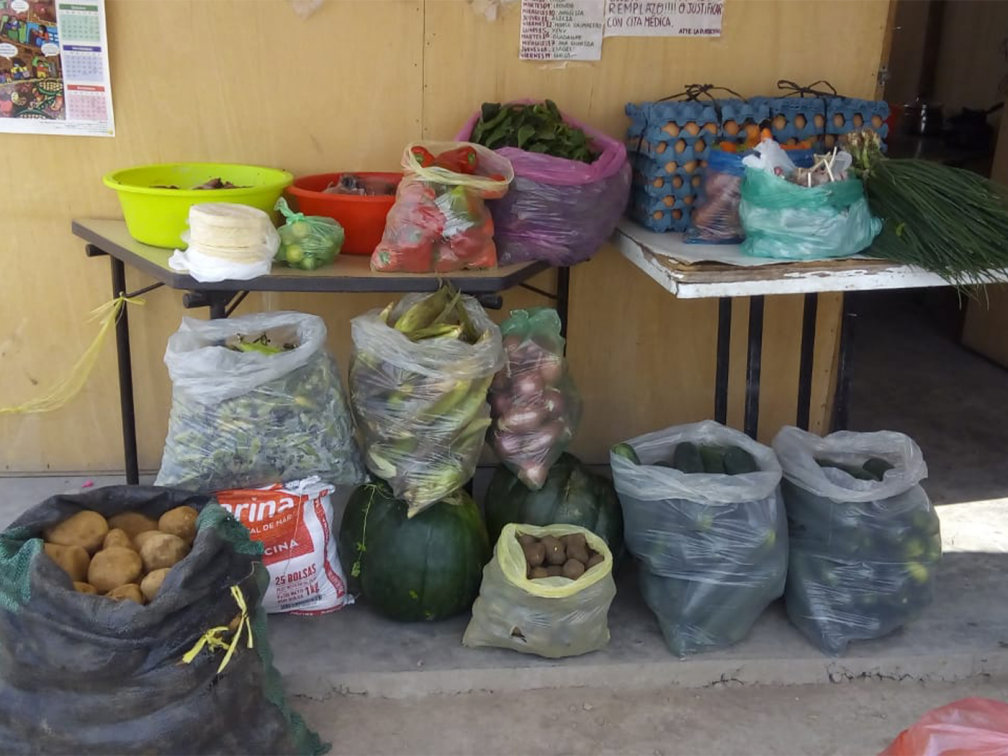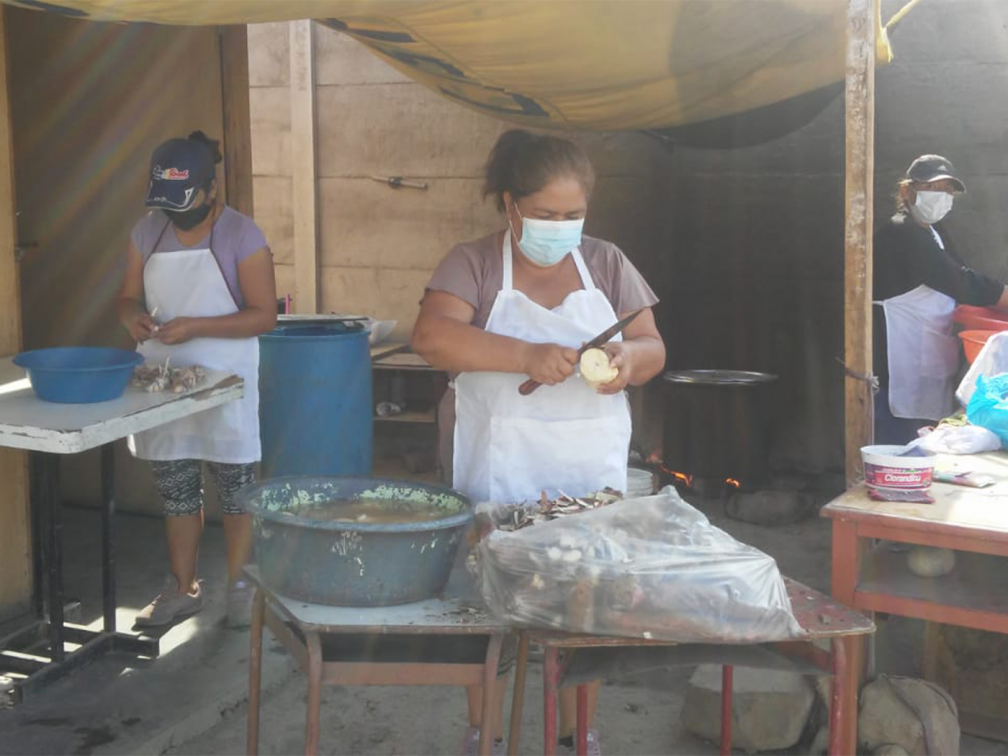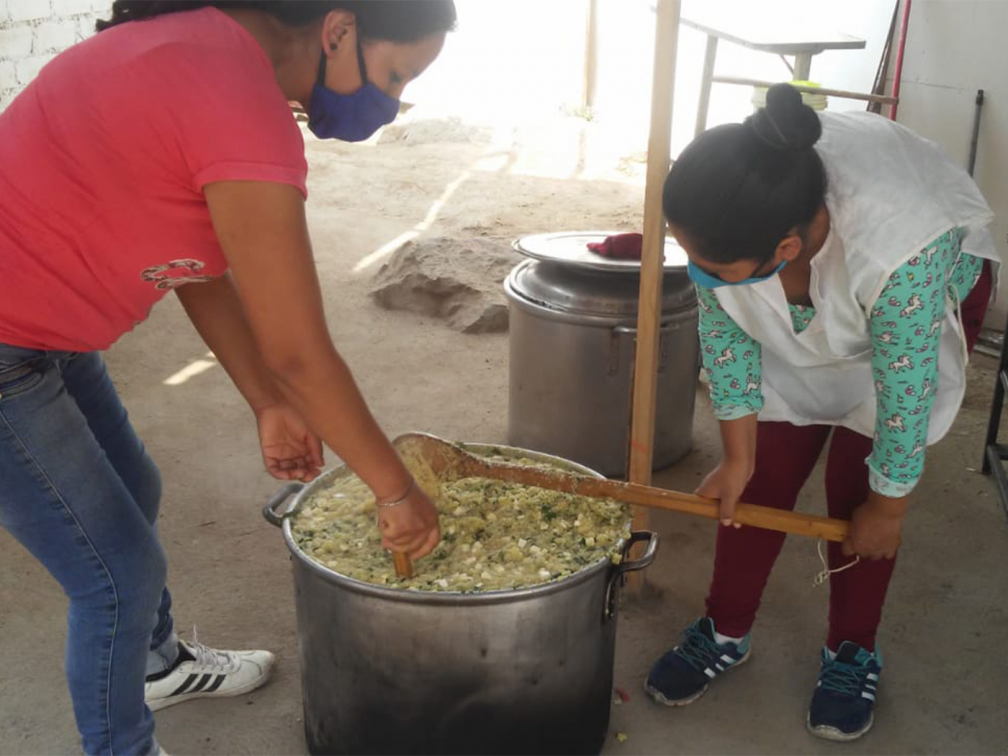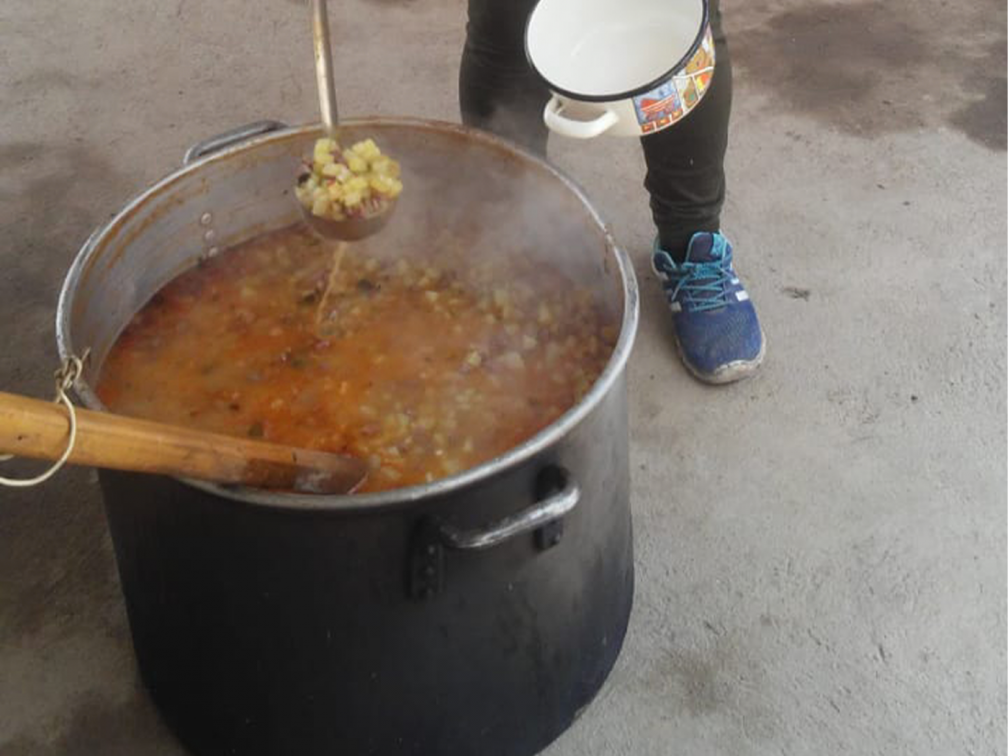The total number of cases of coronavirus on the 30 May 2021 was 1,955,469 (49.9% in Lima Department and Province of Callao). Dan Collyns, Lima correspondent for The Guardian and BBC, two weeks ago talked of 180,000 dead from the pandemic, giving Peru the highest mortality rate in the world. Sadly, today, the Government published a report confirming officially that the number of deaths in Peru from coronavirus up to the 22 May has been 180,764. Peru has a population of 32,625,948.
The vaccine that arrived from China was used on front line workers. Pfizer has also arrived from the US. The over 80s and over 65s are mostly done, at least in Lima, and the over 60s will be beginning soon. 3.7% of population have had both jabs, 8.6% with one jab. The percentages are slowly but surely improving, thanks be to God! It is saving lives of elderly people, as the death rate is now between 100 and 200 rather than 300 or 400.
According to Peru’s National Statistics Agency, nearly a third of the population of the country are now unable to meet their basic needs, and Covid-19 has contributed to three million people being pushed into poverty. According to a report published on 19 May, the increase in poverty, measured in terms of the ability to pay for a basket of essential consumption goods, is most notable in Metropolitan Lima. The proportion of the population in poverty there has almost doubled from 14% in 2019 to 27.5% now. However, as always, poverty is most widespread in rural parts of the highlands. More than 40% of the population live in poverty in six regions (Huancavelica 47.7%, Ayacucho 46.4%, Pasco 44.8%, Huánuco 42.6%, Cajamarca 42.5% and Puno 42.5%). This is a big increase on pre-pandemic levels.
We had the first round of the General Elections in late April, with now just two left of the 15 Presidential candidates! Between the two who go forward for the run-off on the 6 June to be President, their combined vote came to only 30% of the overall vote. There were as many spoiled votes! The people have no confidence in politicians and voted for extremes: a radical left-wing candidate and a right-wing candidate whose father was a previous president now in jail for corruption and human rights abuses. It was a tough choice for the people, most of whom do not want either candidate. At least one of them has questioned neo-liberalism as the way forward. This extreme form of capitalism has been questioned also by Pope Francis, as needing to change for the sake of the common good and the future of the planet! With a week to go there is little between the two, with the left-wing candidate just in the lead, but a lot could happen yet.
I accompany Manuel Duato Special Needs School, a Columban project. The teachers have been in “virtual” contact since March last year, and through the summer of 2021 (January to mid-March), with the parents and through them with nearly 400 children. The new school year, 2021, got underway in mid-March with teachers back to work albeit virtually with 425 students, the highest number we have had, most of whom are severely disabled.
The March figures show the impact of the pandemic. 56 of the 425 students have or have had the virus. Of their parents: 116 fathers and 106 mothers have or have had the virus, and, sadly, seven fathers and one mother have died. Of the teachers, 28 out of the 70 staff have or have had the virus with two in critical condition. 46 of their close relatives have or have had the virus, including seven who have died. It is all so sad. At present, 69% of the parents are out of work or have occasional temporary work – no safety net here!
We helped 55 families of these students on five occasions during 2020, with amounts of around £25 each time and at Christmas we gave £50. Again in 2021 we have given out larger amounts to eight families who either have a special needs child with Covid-19 or are families with a member or more with Covid-19 or another serious illness, and smaller amounts to a further 32 families, all in dire financial difficulties. We will need to do so again soon.
The Warmi Huasi project, accompanying children at risk in both San Benito, in the Lima districts of Carabayllo and San Martin de Porres, and in the Province of Paucar de Sara Sara, high up in the Andes mountains in the department of Ayacucho, is producing amazing results. Our Warmi Huasi teams are in touch constantly with the parents and teachers about the welfare of the children. We have given out all the books from the reading clubs so that the children can read at home. We also have radio programs for the children in Ayacucho, with bio-security advice, parenting advice and storytelling with the children sending in their stories.
From February through March this year, 2021, we arranged for teachers to visit homes in a very limited way, respecting protocols of bio-security and safeguarding, of the children of the primary school in Lampa, Ayacucho. These children had dropped behind. We managed to turn things around for most of them with individual tuition, literally on their doorsteps! Likewise in San Benito, help is being given to those children who have dropped behind.
In San Benito, the mothers have continued five communal kitchens into 2021. The figures in May 2021 are: 191 families helped, with an average of five persons per family, means a total of 955 people receive a meal each day, plus 111 social cases – a grand total of 1,066 meals a day. We have helped each communal kitchen with the purchase of vegetables, chicken or fish, gas and bio-security equipment.
Throughout Lima, affected populations now depend widely on communal kitchens for food. According to one account there are communal kitchens in 30 districts of Lima, 2,034 in all, feeding over a quarter of a million people. In many of the kitchens there are serious problems in accessing sufficient quantities of food. The municipalities are supposed to distribute rations, but supplies are reportedly chaotic in many places.
There is a new communal kitchen in Misiones parish, where I used to work, set up by parishioners who have worked for years in a group to protect women from violence. They are serving 40 meals a day, Monday to Friday, and hope to get up to 50 more before long. It serves mostly migrant families from Venezuela and some social cases. A Venezuelan woman, Ingrid, is on the organising team, and that is a big help.
Much thanks to all the families in Ireland, England, United States, Australia and New Zealand who have helped these families in Peru in our “solidarity between families” program.
May the Risen Lord be near to us all, love and blessings, Ed.




